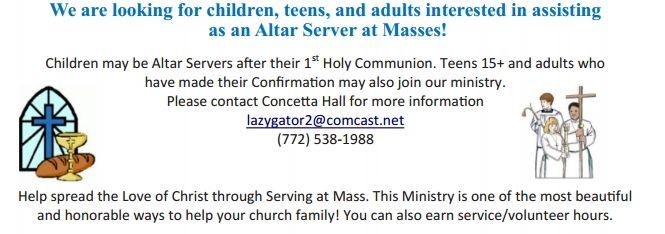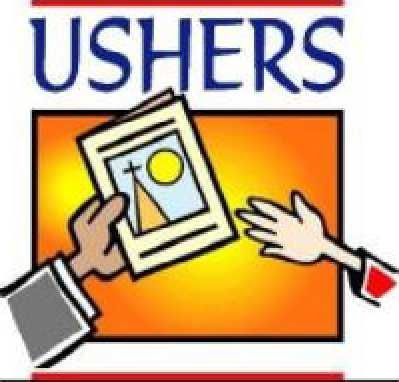PARISH USHERS NEEDED
The parish is in need of ushers for the 7:30am and 11:30am Masses. If you attend either of these Masses and would like to help, please call Sandy in the parish office at 772-589-5790.
There are many other ministries that you can also participate in if you so desire. These would include the Lector ministry, Eucharistic Ministers, Greeters and for children the Altar Server ministry.






































































































